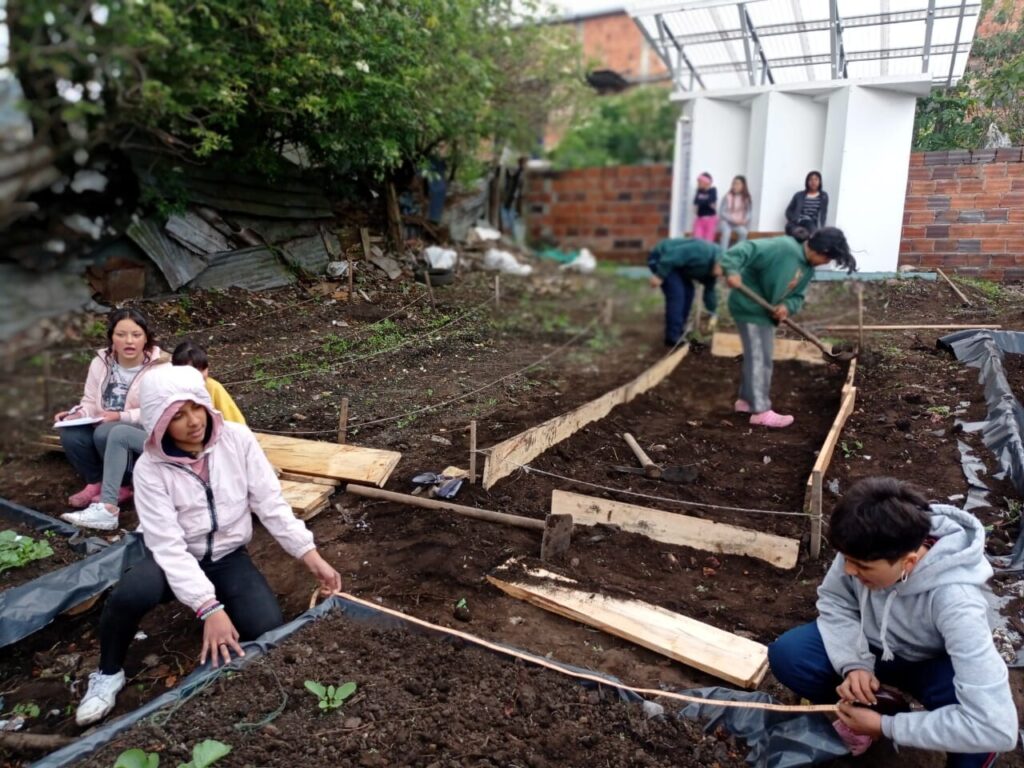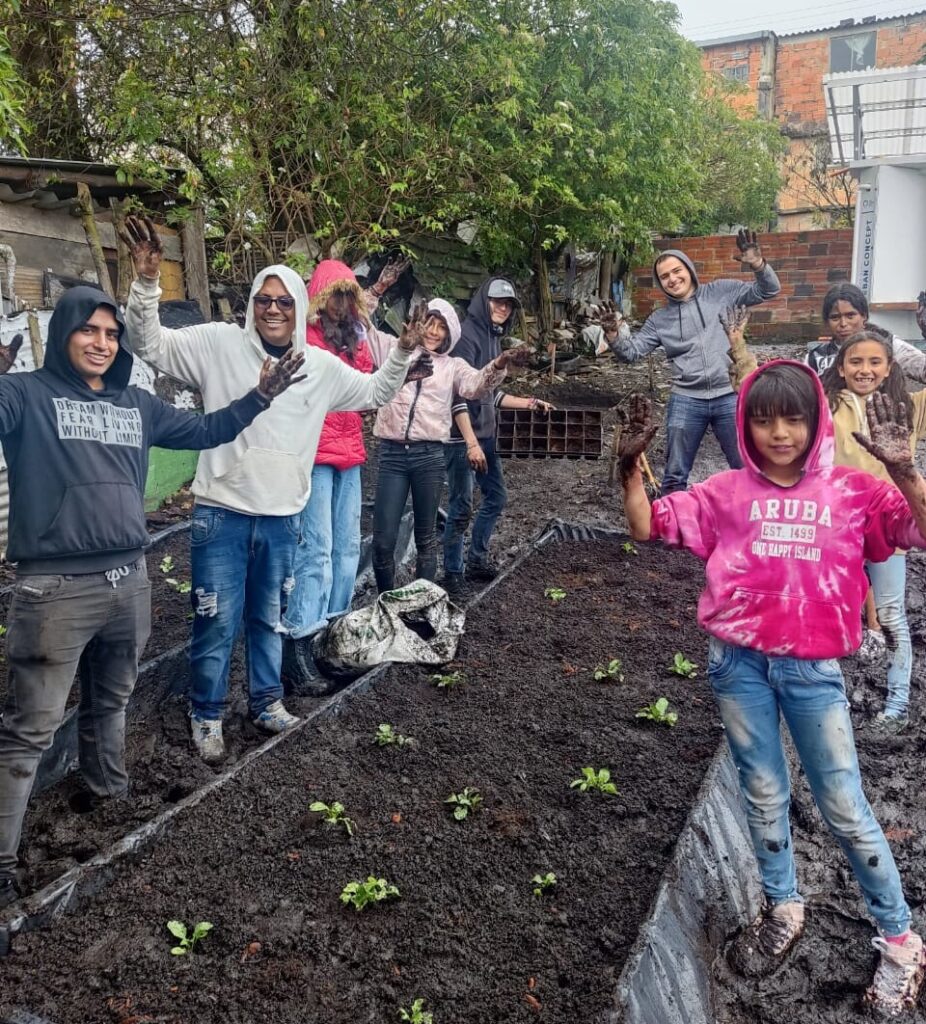Engineering students from the University Del Bosque in Colombia are making a difference at The Nuestra Señora del Milagro Orphanage in Bogota, Colombia. The student team received a grant from EPICS in IEEE in 2023 for a 2-phase project to not only educate the girls but also to help improve their quality of life. This team recently presented their humanitarian project at the IEEE Global Humanitarian Conference. EPICS in IEEE talked with the presenter and team member, Eng. Oscar Javier Rodríguez Riveros, professor of Universidad El Bosque to learn more about this interesting and inspiring project.
Project Phases
During Phase 1 of the project, students created a rainwater system aqueduct to provide and filter water for use within the garden, and for the orphanage’s washing machines. The reason this is needed is that it rains constantly in the area where the orphanage is located, so the sisters collect rain in a makeshift tank to alleviate some of the need for water and save money with its collection. However, access to this resource is difficult, and the girls are forced to access the tank by carrying heavy containers of water. Also, they cannot fully utilize the water resource because it can only be used for cleaning.
In Phase 2, the team is developing an urban agriculture system. This phase consists of the use of nearly 240 square meters of land to develop local crops that grow easily in their zone, including vegetables like lettuce, tomato, aromatic herbs, and more.
Due to zone conditions, this terrain was a wasteland, not only on the surface but underground as well. This situation created a delay in the project because undergrowth increased the complications in preparing the terrain.
However, the project has 8 spaces in terrain prepared to receive seedlings to grow We planned to train the the community about the seedling process, but the weather and zone conditions affect the growing process. For this reason, the team needed to cultivate the seeds, and then when we had the seedlings, share them with the community. On the last visit, the team planted the seedlings.
The project has two structures to obtain and process rainwater, one of them near the washing machine and bathrooms and the other near the crops. We hope to include a basic irrigation system soon.
Challenges and Takeaways
Although the team has finished the initial setup of the new system they did face some challenges throughout the process. One was that the project was originally scoped in 2019 and there has been inflation in the cost of the needed materials. The team had to reevaluate materials and consider cost constraints when submitting an updated proposal for 2023. The community also told the team not to use energy as that would make the system too expensive to maintain. The team needed to work within this limitation when designing their system. In addition, the farm and produce were infected at one point and the plants could not be consumed or sold. The team had to figure out why it had happened and how to mitigate that risk moving forward.
Another challenge for the team was the distance from the University to the orphanage’s location. “The team has worked very hard on this project and has visited the orphanage location often and even on Saturdays,” says Oscar. “The University is 2 hours away from the orphanage so training the community on how to manage this long term will be the key to its success.” Oscar went on to say that the students involved in this project learned both resilience and leadership given the challenges that they faced.


The Future of the Project
The next step for the project is creating manuals for the community on how to maintain the systems that have been put in place. “We feel strongly about training the girls at the orphanage about how to use and maintain these systems which will help improve the quality of life for those at the orphanage for years to come,” says Oscar, “The team also wants to teach the girls to sell the produce that comes from the gardens to help them develop both agricultural and economic skills for their future.”
Through the manuals, the team will ensure that the community and the girls have the skills to prepare and maintain the systems. Furthermore, the University team also wants to create software to assist the girls in selling fruits and vegetables to the local community. The team reflected that it was so motivating to see how interested the girls were in working and learning along with the University students. This kept the team engaged throughout the project to ultimately accomplish something extremely impactful for the girls and the local community in Bogata.
El Bosque University is not new to humanitarian activities in the Bogota community. This team also participated in another social impact project funded through IEEE SIGHT. In 2016, the student branch, in cooperation with the faculty of the engineering programs, supported a project in Cazucá, 4th commune south of Bogotá, where they developed a waste system for a school.

Recent Comments